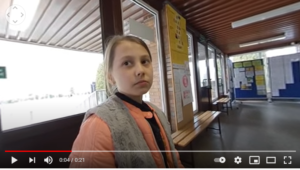Logistic

THEORETICAL FRAMEWORK
GOALS: General:
To familiarise the Polish school community with Ukrainian culture
To make the local school community more sensitive to the needs of others
To build intercultural competences
Goals` taxonomy according to Bloom
A) Cognitive goals:
to address a specific situation by using VR movie
to understand deeper the situation of foreigners’ children in Polish schools by total immersion in a semi-real situation to learn about Ukrainian culture
B) Emotional goals:
to ensure emotional security in terms of welcoming New/Different/Other culture and their representatives to the school
to immerse the participant in a semi-real situation and allow him/her to connect to it his/her life experiences and emotions
C) Psychomotor goals:
to deal with particular aspects of the behaviour related to the situation of welcoming foreign students to deal with particular aspects of the behaviour linked to the uses and customs of foreign cultures
– having a deeper understanding of the situation of foreigners’ children coming to Polish schools,
– having intercultural competencies ready to use in a situation of welcoming foreign students in Polish schools,
– having sense of security in the future situation related to the topic.
discussion, VR movies, drama, working sheets
Trajectory of the teaching process
People are afraid of the unknown. Important exemplification of the unknown may constitute a different culture in a school. This may be particularly current in a situation when parents and children meet with someone that is new/unknown and different to them. The parent may be doubly afraid of it, on behalf of his/her own name and on behalf of the child`s name. Within our workshop, we would like to work with local communities that are meeting with New/ Different culture. What
is more, we would like to show the two sides of the medal? We would like to put Polish parents in the other person's shoes in order to make them able to empathise with the children that are perceived as New/Other/Different (the child who comes to the new country and foreign culture). In this way, we want to tame parents with the New and Different and at the same time sensitise them to the experiences that foreign children have.
Warm-up game: “Tell me the story of your name” game. The presenter holds the ball and tells the story of his name – for example, its meaning, who gave him his name or how much he like it. After the short story, he throws the ball to another participant asking the questions: What is the story of your name? Participants throw the ball until everyone had the opportunity to tell few words about his/her name.
Sum Up
The presenter sums up what the group has discussed and learnt during the session. It is time for free questions, too. The presenter introduces the presentation
„Supporting a foreign child in a new school” is the summary of the content appearing during classes.